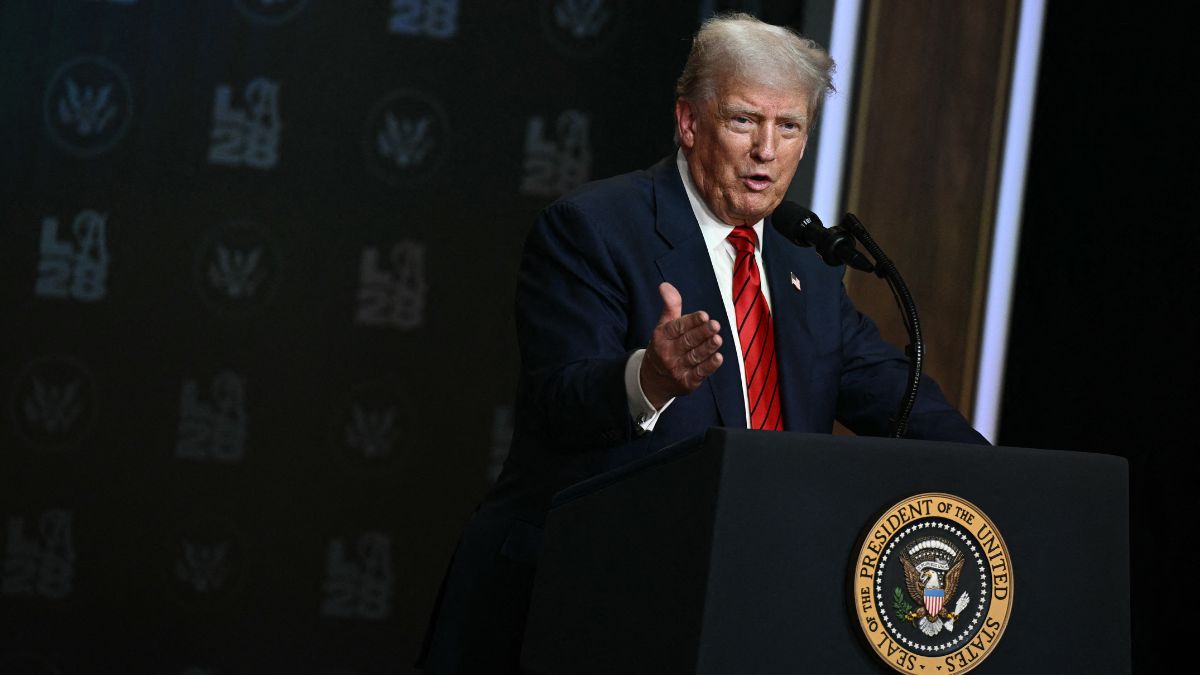With Trump’s anti-India rhetoric and tariff war , he leaves little room for speculation that his campaign against India is more personal, driven by ego, and not about policy differences.
It is clear that President Trump’s ego has been hurt by India’s rejection of his claims about negotiating a ceasefire between India and Pakistan in May, according to Yusuf Unjhawala, a scholar of geopolitics at the Takshashila Institute.
The final nail appears to have been Prime Minister Narendra Modi’s rejection of Trump’s invitation for a visit to White House after the G-7 Summit.
In June, Trump returned earlier than scheduled from the G-7 Summit in Canada and could not meet PM Modi in person on the sidelines of the summit. Instead, he invited PM Modi to visit the White House on his return to India. But PM Modi turned down the request and instead talked on the phone days later.
“It is now clear that President Trump wanted to bring Prime Minister Modi and the Pakistani army chief in the same room and make an announcement about bringing the two sides to a peaceful settlement. But that could not happen as Prime Minister Modi declined the invitation. It appears that President Trump has taken that, along with a constant rejection of his claim of ending the India-Pakistan conflict, as a hit on his ego,” says Unjhawala.
ALSO READ — Tariff tirade to Cold War: Trump risks undoing 3 decades of India-US partnership
There is another aspect to this whole Trump theatrics. It is well-documented that Trump has rivalled former US President Barack Obama, whose public mocking of the billionaire tower-builder nudged him to join the Republican race for presidency in 2016. Since his first presidency, Trump has expressed his aspiration to be awarded with a Nobel prize. Obama got one for peace.
Impact Shorts
More ShortsTrump’s second presidency has been working to get as many nominations as possible for a Nobel Peace Prize. Israel’s Benjamin Netanyahu has promised nominating Trump. Pakistan has endorsed Trump’s bid. His press secretary has said it so.
This week, his Secretary of State Marcos Rubio called him a “ President of Peace ” while repeating Trump’s claims of meditating India-Pakistan military clash after the Pahalgam gun massacre of tourists chosen after ascertaining their religious identities by Pakistani terrorists and bringing the arch-rivals to a ceasefire understanding.
Trump counts the India-Pakistan truce among his claim of ending five wars. India’s repeated rebuttals of Trump’s relentless claim have put a question mark on his credibility as a deal-maker, given that his biggest peace promises of ending wars in Ukraine and Gaza remain unfulfilled. An endorsement of his ceasefire claims could mean a big recommendation for his Nobel ambition to be in the same league as Obama. This is where analysts appear to be right on the money about Trump’s anti-India tirade being a personal motivation.
It’s not mere coincidence that Pakistani Army chief Field Marshal Asim Munir met Trump at the White House around the time Trump invited Modi.
What’s the way ahead?
As for the way ahead, Unjhawala dismissed the talk of pivoting to ‘RIC’ or China.
“In ‘RIC’, India will be in a very weak position as it will be outnumbered by the China-Russia combine. Moreover, China and Russia will promote it as another anti-Western organisation, which will further complicate India’s ties with the West,” says Unjhawala, and suggests calm-headed negotiations should continue.
Ram Singh, a professor of international trade and business expert at the Indian Institute of Foreign Trade (IIFT), says that the immediate concern has to be to address the impact of tariffs on vulnerable sectors like marine, such as shrimp and prawn, and edibles, such as seasonal fruits and pickles. Firstpost has previously reported that India is considering a financial package to support exporters most affected by tariffs.
Instead of any retaliation, India should continue to hold negotiations and explore additional opportunities for exporters in non-US markets like the European Union (EU), the Gulf region, or Brics nations, says Singh.
“But ‘RIC’ or Brics cannot replace the United States. In the case of ‘RIC’, the India-China rivalry will be too much for the group to be relevant. For India, the ideal approach should be to negotiate calmly without resorting to the kind of rhetoric that President Trump uses. India should also flag the hypocrisy of tariffs by all channels, whether by government statements or media or track two channels,” says Singh.
Madhur Sharma is a senior sub-editor at Firstpost. He primarily covers international affairs and India's foreign policy. He is a habitual reader, occasional book reviewer, and an aspiring tea connoisseur. You can follow him at @madhur_mrt on X (formerly Twitter) and you can reach out to him at madhur.sharma@nw18.com for tips, feedback, or Netflix recommendations
)